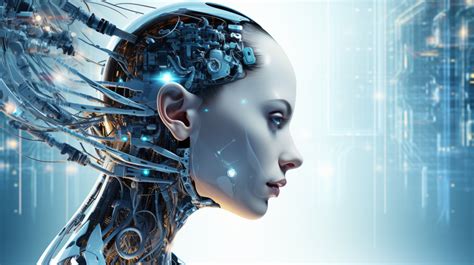Introduction

Artificial Intelligence (AI) is rapidly reshaping industries and transforming our lives. With its ability to process vast amounts of data, identify patterns, and make decisions, AI is unlocking new possibilities and driving innovation across sectors.
Market Outlook
- According to Gartner, the global AI market is projected to reach $62 billion by 2022.
- The World Economic Forum estimates that AI will contribute $15.7 trillion to the global economy by 2030.
Key Applications
- Healthcare: AI-enabled medical devices improve patient diagnosis, surgical accuracy, and drug development.
- Finance: AI automates risk assessment, fraud detection, and investment management.
- Manufacturing: AI optimizes production processes, reduces waste, and enhances quality control.
- Retail: AI personalizes shopping experiences, optimizes pricing, and predicts customer behavior.
- Education: AI adapts learning content, provides personalized feedback, and automates administrative tasks.
Benefits of AI
- Increased Productivity: AI automates repetitive tasks, freeing human workers to focus on more strategic initiatives.
- Improved Decision-Making: AI analyzes vast amounts of data to identify patterns and make informed decisions.
- Cost Savings: AI reduces operational costs by automating tasks, reducing waste, and optimizing supply chains.
- Enhanced Customer Experience: AI provides personalized services, automates support, and improves user engagement.
- New Opportunities: AI fuels innovation and creates new products, services, and revenue streams.
AI in Action
- Self-Driving Cars: AI powers autonomous vehicles that navigate roads, detect obstacles, and make real-time decisions.
- Virtual Assistants: AI-powered virtual assistants handle tasks, schedule appointments, and provide information.
- Natural Language Processing: AI enables computers to understand and respond to human language.
- Image Recognition: AI identifies objects, faces, and patterns in images and videos.
- Predictive Analytics: AI analyzes data to predict future events and identify trends.
“Cognitize”: Generating Ideas for New Applications
To generate innovative ideas for AI applications, consider the concept of “Cognitization.” Cognitization involves applying cognitive capabilities to enhance existing tasks or create entirely new ones.
- Enhance Tasks: Use AI to automate, augment, or personalize existing tasks.
- Create New Products/Services: Develop AI-powered products or services that address unmet needs.
- Optimize Processes: Utilize AI to improve the efficiency and effectiveness of business processes.
Useful Tables
| Application | Benefits | Examples |
|---|---|---|
| Healthcare | – Improve diagnosis accuracy | – AI-powered medical imaging |
| Finance | – Enhance fraud detection | – AI-based risk assessment systems |
| Retail | – Personalize customer experiences | – AI-driven recommendation engines |
| Education | – Adapt learning content | – AI-powered educational platforms |
Tips and Tricks
- Start Small: Begin with implementing AI in focused areas to minimize risk and maximize impact.
- Use Quality Data: AI models rely on high-quality data to make accurate predictions.
- Understand the Limitations: AI is not a substitute for human intelligence and has limitations.
- Be Transparent: Disclose the use of AI in products and services to build trust with users.
- Invest in Education: Train employees on AI principles to foster adoption and innovation.
Common Mistakes to Avoid
- Overreliance on AI: Recognize that AI is a tool that complements human intelligence, not replaces it.
- Lack of Data Governance: Ensure proper data management and governance practices to ensure data quality and security.
- Ignoring Ethical Implications: Consider the ethical considerations surrounding AI, such as bias and privacy concerns.
- Unrealistic Expectations: Set realistic expectations for AI outcomes to avoid disappointment.
- Resistance to Change: Encourage employees to embrace AI and support its implementation.
Conclusion
Artificial Intelligence is a transformative force that is shaping the future of industries and society. By harnessing its capabilities, organizations can unlock new possibilities, enhance efficiency, and improve customer experiences. Organizations that embrace AI and leverage its potential will gain a competitive advantage and become leaders in the digital age.
